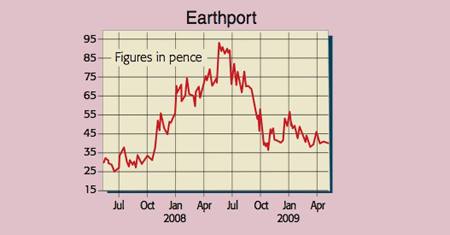Get the latest financial news, insights and expert analysis from our award-winning MoneyWeek team, to help you understand what really matters when it comes to your finances.
You are now subscribed
Your newsletter sign-up was successful
Want to add more newsletters?

Twice daily
MoneyWeek
Get the latest financial news, insights and expert analysis from our award-winning MoneyWeek team, to help you understand what really matters when it comes to your finances.

Four times a week
Look After My Bills
Sign up to our free money-saving newsletter, filled with the latest news and expert advice to help you find the best tips and deals for managing your bills. Start saving today!
Last summer I booked a lovely holiday villa in the Austrian Alps and wired over €200 as a deposit. I used one of the main British high-street banks, but to my horror was stung with a £25 fee on top of 2% commission. Worse still, the apartment owner was also hit with a €10 charge at his end. In total, the transaction took two days to complete and cost a whopping 25% in middlemen fees. Surely there must be a better way?
This is where Earthport steps in. Its banking network executes these type of cash transfers literally within hours and for up to 90% less than traditional providers. It does this by leveraging its global scale and netting off currency positions across all of its users.
Earthport (Aim: EPO)
MoneyWeek
Subscribe to MoneyWeek today and get your first six magazine issues absolutely FREE

Sign up to Money Morning
Don't miss the latest investment and personal finances news, market analysis, plus money-saving tips with our free twice-daily newsletter
Don't miss the latest investment and personal finances news, market analysis, plus money-saving tips with our free twice-daily newsletter
For instance, for the most popular destinations there are equal and opposite foreign-exchange flows, thus creating a natural equilibrium.
As such, in most instances there's no need to actually complete each individual transfer, but rather simply to manage the top level exposures thus eliminating the middlemen. All Earthport charges is a small fee, say £5 per transaction, while passing on the rest of the savings to its customers.
Great, so where can we use it? Well, it's still early days because Earthport is not a consumer-facing bank, but instead white-labels its proprietary software to other financial institutions such as DataCash, e-Clearing and ProPay.

One issue though with take-up from the top banks is that they are making so much money out of the existing system that they have no urgent desire to implement such cost-saving platforms. But this is a disruptive technology, like Skype's internet telephone service, and sooner or later there's going to be a mass exodus of disgruntled clients to services such as those offered by Earthport.
What's more, the firm is making good headway regardless, having already signed flagship deals with Lloyds, Experian and Standard Chartered possibly opening the flood-gates to further opportunities. If this comes about, then with its high fixed-cost base, the vast majority of extra income will fall straight to the bottom line.
The problem from an investment perspective is that the business hasn't yet hit its break-even turnover of around £5m a year. However, it's not too far off, with house broker Cenkos predicting 2009 revenues of £4.8m along with underlying earnings per share loss of 0.6p. And if the company can land a few more big names over the next two years, then I could readily see revenues snowball to £15m by 2011, generating earnings per share of more than 7p.
Fine, but what do we need to watch out for? Well, being a small loss-making company operating in an increasingly competitive market means that the risks are high. More specifically, with net funds of £1.2m, there is an outside chance that more capital will be required if new deals are delayed. But for the adventurous investor, this is a gamble that could pay off handsomely.
Recommendation: high-risk BUY at 41.5p (market cap £34m)
Paul Hill also writes a weekly share-tipping newsletter, Precision Guided Investments
Get the latest financial news, insights and expert analysis from our award-winning MoneyWeek team, to help you understand what really matters when it comes to your finances.
Paul gained a degree in electrical engineering and went on to qualify as a chartered management accountant. He has extensive corporate finance and investment experience and is a member of the Securities Institute.
Over the past 16 years Paul has held top-level financial management and M&A roles for blue-chip companies such as O2, GKN and Unilever. He is now director of his own capital investment and consultancy firm, PMH Capital Limited.
Paul is an expert at analysing companies in new, fast-growing markets, and is an extremely shrewd stock-picker.
-
 Last chance to invest in VCTs? Here's what you need to know
Last chance to invest in VCTs? Here's what you need to knowInvestors have pumped millions more into Venture Capital Trusts (VCTS) so far this tax year, but time is running out to take advantage of tax perks from them.
-
 ISA quiz: How much do you know about the tax wrapper?
ISA quiz: How much do you know about the tax wrapper?Quiz One of the most efficient ways to keep your savings or investments free from tax is by putting them in an Individual Savings Account (ISA). How much do you know about ISAs?